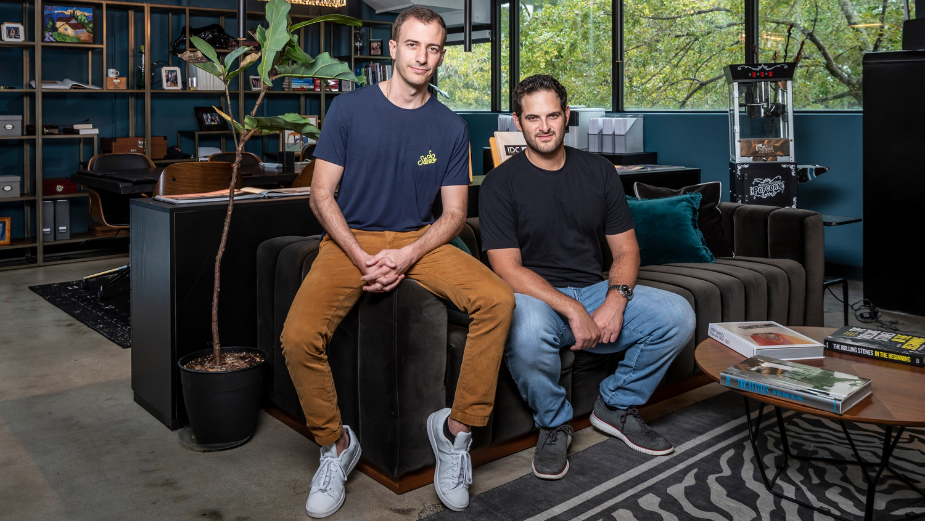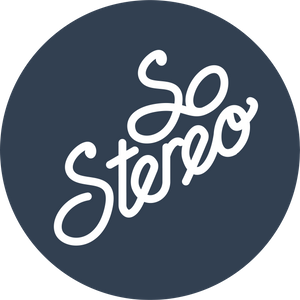
Accelerating the Authentic: How SoStereo Is Unlocking Artists' Music for More Brands

In many ways, it feels like the music industry is at a crossroads. Amidst growing demands for more sustainable practices, there are important questions being asked about how artists get their big break in an environment where - in light of the pandemic - organising live shows has become a fraught business.
In SoStereo, a music platform founded by Salo Sterental and Beto Azout and based in Miami and LA, there might be at least part of an answer. The company’s stated mission statement is to “enable brands to unlock the power of music”, an ambition it achieves by working with a growing global network of 10,000 diverse emerging artists across the planet. Those artists make their music accessible for commercial use, which can then lend unique quality and authenticity to any ad. Through SoStereo, artists with hundreds of thousands - even millions - of streams are suddenly at a brand’s fingertips. Those artists also stand to receive a significant portion (a majority) of the fees paid by the brand. The contrast with the stock library model, replete with forgettable music and limited rewards for artists (if any), could hardly be more profound.
For brands looking to elevate their content via culturally relevant music without breaking the bank, navigating the SoStereo platform will feel as familiar as browsing a streaming service such as Spotify or Apple Music. It’s built to provide high-quality audio to give a sense of an artist, and is curated by SoStereo’s in-house team. Users can search, for example, for a soul artist based in Tennessee as easily as they can find a folk singer in Britain.
While they may not be a household name (yet), chances are they're your favorite creative director's secret weapon. And you've certainly seen their work - from award winning Hennessy “Maurice & The Black Bear School”, to Oculus and Taco Bell. The promise of SoStereo, then, is a win-win for both brands and artists. But can existing music from real streaming artists ever seriously compete with stock libraries for affordability and convenience? To find out, LBB spoke to the company’s co-founders, Salo Sterental and Beto Azout.
Above: SoStereo provided the soundtrack to 'moments of pure Taco Bell bliss' in this memorable ad out of Deutsch LA.
Back To The Start
Looking back, it was perhaps inevitable that Salo and Beto would go into business together.
“We got connected through a mutual friend of ours at college, and while having lunch together got onto the topic of the music business”, recalls Salo. “We had a similar vision about production, and we happened to be studying the same thing. We started writing and producing music together while at Berklee, and ended up working with real brands and artists out of our dorm room for a while”.
Amidst the humble beginnings, a blueprint for what would become SoStereo was already beginning to take shape. “This was around 2010, so there was a fundamentally different feel to the industry landscape”, notes Beto. “Even then, iTunes was the world’s number one way to consume music which feels somewhat strange today. But a lot of the issues brands were running into back then are still proving to be obstacles now”.
Specifically, Beto is referring to the issues faced by brands and agencies when it comes to securing distinctive, quality music for their ads. In an era where viewers are more likely to have multiple screens active at once, music and sound are arguably more important than they ever have been. And yet, there’s a perception that only the very biggest brands can afford to consistently shell out for real music by real artists whilst the rest of the industry works with cheaper stock music libraries. That’s an idea which Salo and Beto have set out to prove wrong.
“It wasn’t long after we started working together that we landed on an opportunity to prove that things could be done differently”, says Salo. Whilst still in college, the duo started working alongside the now-iconic fitness brand Zumba.
“We found that Zumba loved the energy that real, authentic music generated in their ads”, says Beto, “but they didn’t love the hefty price tags of artists like Pitbull and Wyclef. We saw an opportunity there, because we’d been working with a new Colombian artist called Mara who had a style which we knew would translate well to the brand”.
After connecting the artist to the brand’s marketing, the idea paid off handsomely. “Zumba found that their audience was Shazam-ing Mara in the middle of their workout sessions”, says Salo. “More than nine million views later, Mara and Zumba have teamed up for workout videos, music videos, and more campaigns. It’s awesome because not only did we help solve a problem for a brand, we also helped an artist attach rocket boosters to their career”.
As an isolated case study, it makes for a nice story. But both Salo and Beto knew that they’d hit on a formula which could be scaled up. With that, SoStereo was born.
Above: SoStereo's work on Maurice Ashley and the Black Bear School helped bring the story of the first black chess grandmaster to life.
The Best Of Both Worlds?
Today, SoStereo’s platform comprises more than 10,000 artists, each scouted by the company’s in-house team. It’s an increasingly deep ocean of content for brands to explore, with the added benefit of that music having built-in fan bases - not to mention the opportunity for a brand to elevate an artist’s career.
“We wanted it to feel like Spotify”, explains Beto, “and nobody goes to Spotify for stock music. We’re really proud of the quality of our network, and the talent of every single artist we work with”.
In helping brands while also paying fair dues to artists themselves, it feels like SoStereo is built to offer the best of both worlds. But which aspect do Salo and Beto find most satisfying?
“It’s a clichéd response but I’d have to say both”, says Salo. “We get a massive amount of satisfaction from the role we play as problem-solvers for brands, but equally when we get to make the call to an artist to share good news, it’s a beautiful feeling. These are artists for whom that money pays bills, or can be invested into their careers. It really matters”.
Since getting their first big break with Zumba, the story of SoStereo thus far is not lacking for other noteworthy examples of the company’s philosophy in action. Take their work with Budweiser for the 2018 FIFA World Cup, for example. In order to provide the brand with an ‘edgy and modern’ track for their ad, they enlisted the Venezuelan DJ and producer Felmax. Upon the release of the campaign, Felmax tweeted that he had arrived in the US as a refugee at the age of 8 ‘with nothing’, was an avid soccer fan, and that he ‘could not believe’ his track was on a Budweiser commercial for the World Cup. In his own words, it was proof that ‘dreams do come true’.
Or consider their work for an American apparel chain where they enlisted an Italian artist who went on to enjoy an enormous spike in streaming across the whole continent after their music was used on a regional campaign. “Stories like that are why we do what we do”, notes Beto.
Looking forward, however, SoStereo plans to evolve its platform into something yet more helpful for brands and artists alike. “Something we’re looking at quite seriously is how we can create better data tools so we can understand the audience for any given music or artist”, says Salo. “We want to help answer questions like ‘what is the sonic identity of my brand?’, and provide insights. Brands nowadays are content publishers, and we can help them be successful in that”.
Whatever the future may hold, it’s an interesting time for music. As many of us reassess our relationship with the artform and ask questions around how the industry functions, SoStereo’s model provides a glimpse into what could well be a mutually beneficial future. In an era where brands are searching for ways to assert their identity, affordable authenticity is an idea whose perfect moment might well have arrived.













